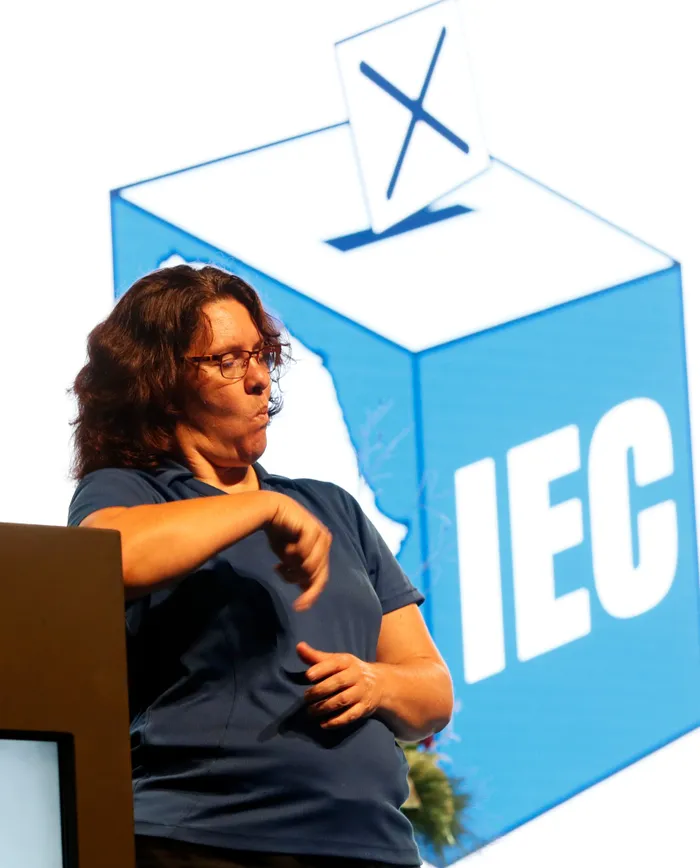Let’s make sign language a vital part of elections

As we prepare for the 2024 national and provincial elections, I hope most South Africans will make an effort to promote sign language in election campaigns and the overall voting experience of the citizens, says the writer. Picture: Simphiwe Mbokazi African News Agency (ANA).
Nkosikhulule Nyembezi
When President Cyril Ramaphosa signed into law the South African Sign Language Act during a ceremony at the Union Buildings in Pretoria last week, it was a moment of celebration for many who have worked tirelessly to build the institutional framework to promote the language in our country.
As we prepare for the 2024 national and provincial elections, I hope most South Africans will make an effort to promote sign language in election campaigns and the overall voting experience of the citizens.
As a former chairperson of the Western Cape Language Committee, I have taught human rights education to citizens from a variety of ethnic and religious backgrounds, and those with varying educational needs and abilities. I adapt my teaching style, learning environment and activities to suit every participant in my training course.
Learning and using sign language comes with challenges and opportunities. In 2015, I was fairly new to sign language when I conducted classes for high school pupils for two weeks. I was intrigued when I got the phone call asking me to offer democracy and civic education classes in a mainstream school with a Unit for Hearing Impaired children attached.
The class was fully staffed with 1:1 learning support assistants who could sign and translate everything I said to the pupils. My relief was immense. And the enthusiasm to respect human rights, register as voters, interrogate election manifestos, and vote after turning 18 years old was encouraging.
But my interactions with deaf university students have highlighted the urgency to make the South African Sign Language Act official, and to integrate its use into our daily activities.
Hearing people can engage in meaningful conversations with deaf people. Too often, deaf people find themselves apologising for the communication breakdown. They often politely say sorry, hoping that will eliminate the exasperation of the hearing person. It usually does, and individuals are soon fumbling for another way to communicate, but this should make us keep wondering if it is not troubling that the oh-so South African institution of politeness extends to deaf people apologising for the inaccessibility that discriminates against them.
The journey to the passage and promulgation of the South African Sign Language Act opened my eyes to how deaf people are shut out of important conversations, especially during elections. Getting as many people involved in promoting the language can help encourage many deaf people to stop apologising and make them realise they must stop saying sorry for being themselves.
Part of learning how to stop apologising can come through a greater understanding of the social model. It is not their condition(s) as a deaf that disables them, but rather the world we live in. When it comes to elections, deaf people face constant difficulty receiving a wide range of political views.
For example, automated telephone call messages used by some political parties, public meeting announcements before visits by candidates to communities, and verbal prompts, when candidates are ready to see deaf household members during door-to-door campaigns, were inaccessible.
In the past, some electoral staff would say that providing a sign language interpreter was unnecessary because a family member could interpret. Party agents are also not empowered to effectively witness that assistance given to deaf voters inside voting stations is free of undue influence.
We need to shift the narrative that deaf people are responsible for accessibility. The change must happen soon if we are serious about ensuring an inclusive democracy that enables every adult citizen to make political choices in the election of public representatives freely. I hope the legislation will help change societal perspectives. Deaf people deserve better.
Nyembezi is a researcher, policy analyst and human rights activist
Cape Times
Related Topics: